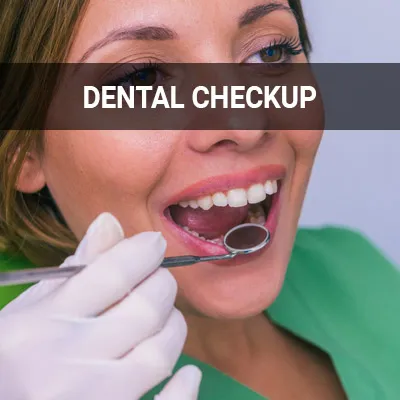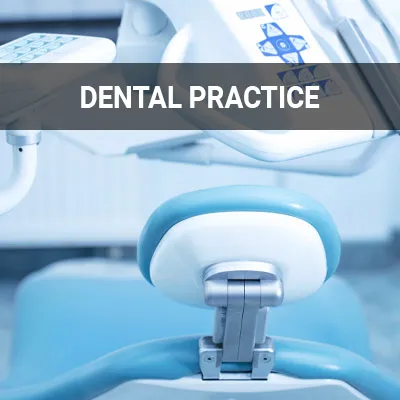Comprehensive Dentist Ocean Township, NJ
Many people do not realize that good total health starts with good oral health. The reverse is also true. Neglecting any health concerns will inevitably affect other parts of your body. This is known as the oral health connection. Comprehensive dentists address these issues by treating the entirety of a patient's condition rather than focusing on isolated symptoms.
Comprehensive dentistry is available at Shoreline Dental in Monmouth county and beyond. A total health dentist can help put you on the fast track to good oral and overall health. Call us today at (732) 361-4240 to schedule an appointment or to learn more about our services.
Why Comprehensive Dentistry
Unlike traditional dentists, comprehensive dentists work in collaboration with their patients. Most patients of traditional dentists only go into the office on an "as-needed" basis. Moreover, when they are there, they typically will not receive any education on their condition. Their dentists do not tell them how their symptoms manifested, what other health problems they could indicate, or how to address the root causes of their condition.
In contrast, comprehensive dentists take a more integrative approach. They focus on treating a patient's total health through treating their oral health. By looking for the root cause of a patient's symptoms, comprehensive dentists can often identify signs of broader health conditions. As such, they are more directly involved in their patients' care — and provide them with the necessary education needed to do the same.
“By looking for the root cause of a patient’s symptoms, comprehensive dentists can often identify signs of larger health conditions.”
Choosing a Comprehensive Dentist
Many people are hesitant to see a comprehensive dentist because they do not know if it will be covered under their insurance. However, comprehensive dental offices operate just as conventional dental offices do. Many practices are covered by various health insurance plans, though some cosmetic and restorative treatments may need to be paid for out-of-pocket. As insurance carriers consider dental coverage to be a non-essential benefit, it is always best for patients to confirm with their insurance company and healthcare provider before making any plans.
As several conditions have direct relationships with oral health, all members of a patient's medical team should have contact with each other. This allows for a more thorough understanding of a patient's total health. However, primary care providers rarely ask a patient about their oral health. With a patient's permission, a comprehensive dentist can alert any relevant healthcare providers about any warning signs indicative of disease and work together to create the best treatment plan for their unique needs.
“With a patient’s permission, a comprehensive dentist can alert any relevant healthcare providers about any warning signs indicative of disease and work together to create the best treatment plan for their unique needs.”
Lifestyle Changes for Total Health
Since a comprehensive dentist focuses on all aspects of a patient's health, they can also recommend any lifestyle changes that may benefit them. This includes some basic advising on nutrition, as a patient's diet directly affects their oral health. Once food enters the mouth, it will inevitably affect tissue health. Conversely, oral health will affect a patient's ability to eat. Healthy eating habits can keep both of these potential problems in check. Patients are well-advised to avoid natural and added sugars, processed starches, and low pH-level acids.
Practicing good oral hygiene is also a critical part of improving dental health. This means brushing teeth at least twice a day with a soft-bristled toothbrush, flossing nightly, and rinsing with a fluoridated mouthwash. Patients should ensure that they are brushing correctly — taking the time to move the toothbrush in gentle, circular motions rather than over- or under-brushing. And, since nothing can replace a comprehensive dentist's expertise, patients should go in for regular wellness visits at least twice a year. Some patients may need to go more frequently, depending on their needs.
“Since a comprehensive dentist focuses on all aspects of a patient’s health, they can also recommend any lifestyle changes that may benefit them.”
Check out what others are saying about our dental services on Yelp: Comprehensive Dentist in Ocean Township, NJ
Understanding the Oral Health Connection
According to the Mayo Clinic, a patient's dental health often reflects the state of their overall health — primarily because the mouth is a natural breeding ground for bacteria. Though most of these bacteria are harmless, poor oral hygiene can allow them to flourish at dangerously high levels. At that point, it may cause various oral infections or enter the digestive and respiratory tracts. Consequently, any oral health issues should be treated as potential signs of underlying health problems. This is known as the oral health connection.
Cardiovascular conditions and diabetes are two of the most common systemic health issues associated with oral health. Diabetes and periodontal disease even exist bidirectionally with each other — meaning that treating (or aggravating) one condition will effectively do the same to the other. Furthermore, research shows that patients with periodontitis are two to three times more likely to have a heart attack, stroke, or other serious cardiovascular events. Other systemic conditions linked to oral health include, but are not limited to, pneumonia, rheumatoid arthritis, and Sjorgen's syndrome.
“According to the Mayo Clinic, a patient’s dental health often reflects the state of their overall health — primarily because the mouth is a natural breeding ground for bacteria.”
Questions Answered on This Page
Q. How is comprehensive dentistry different from traditional dentistry?
Q. What should I know before choosing a comprehensive dentist?
Q. Are there any lifestyle changes I can make to improve my oral health?
People Also Ask
Q. What happens during a total oral health dentistry visit?
Q. Why should I see a complete health dentist for dental aesthetics?
Q. How does high blood pressure affect dental treatment?
Q. Beyond regular checkups, what additional procedures might a dentist recommend?
Establishing a Healthy Mouth Baseline
Seeing a comprehensive dentist is a great step to maintain one's overall health. During the initial consultation, the dentist will show the patient a graph of the healthy mouth baseline. This model identifies any oral health irregularities that the patient and comprehensive dental team will work together to eliminate. A regular visit to a comprehensive dentist is not just a "checkup" — it is a wellness visit.
Before the patient meets the dentist, they will first overview their concerns with the dental hygienist. Afterward, the hygienist will take the patient's vitals, conduct an oral cancer screening, and ask about sleep and lifestyle habits. This will allow the doctor to create the best treatment plan for the patient's unique and individual needs. From then on, they will work together to set realistic health goals and discuss how to achieve them.
“A healthy mouth baseline identifies any oral health irregularities that the patient and comprehensive dental team will work together to eliminate.”
Frequently Asked Questions
Q. What causes periodontal disease?
A. An excess buildup of plaque typically causes periodontal disease. Once hardened under the gum line, this plaque will turn into tartar and develop into gingivitis, a milder form of gum disease. If left untreated, it will eventually lead to periodontitis.
Q. Am I at risk for periodontal disease?
A. Some lifestyle choices can put a person at risk for periodontal disease. These include excessive alcohol consumption, tobacco use, and poor nutrition. Age, bruxism (also known as teeth grinding), genetics, medications, and stress can also play a role. Everyone has a unique risk profile. We can help identify and work through yours.
Q. Is periodontal disease linked to chronic inflammation?
A. Yes. Chronic gum inflammation is one of the leading causes of periodontal disease. This creates pockets between the gums and teeth, filling with plaque, tartar, and bacteria. These pockets become deeper over time, and the inflammation may spread to other parts of the body.
Q. Why do comprehensive dentists care about patient education?
A. Without a basic understanding of what is affecting them and why, many patients feel helpless, intimidated, and left to the healthcare system's whims. Moreover, they are unable to make informed decisions about their condition. Patient education can empower them to be active participants and make informed decisions about their care.
Q. How often should I get an oral cancer screening?
A. As every patient has a unique and distinct risk profile, there is no conclusive, one-size-fits-all answer. Shoreline Dental can help determine what would be most appropriate for you.
Dental Terminology
Call Us Today
Improving your oral health is an integral part of boosting your overall wellness. Our total health dentist at Shoreline Dental may be able to help. Call us today at 732-361-4240 to schedule an appointment or to learn more about our services.
Helpful Related Links
- American Dental Association (ADA). Glossary of Dental Clinical Terms. 2023
About our business, license, and website security
- Shoreline Dental was established in 2023.
- We accept the following payment methods: Cash, Check, Discover, MasterCard, and Visa
- We serve patients from the following counties: Monmouth County and Ocean County
- We serve patients from the following cities: Ocean Township, Neptune Township, Asbury Park, Interlaken, Eatontown, and Freehold
- NJ. View License Information and Specifics
- National Provider Identifier Database (1184045981). View NPI Registry Information
- Norton Safe Web. View Details
- Trend Micro Site Safety Center. View Details
Back to top of Comprehensive Dentist










